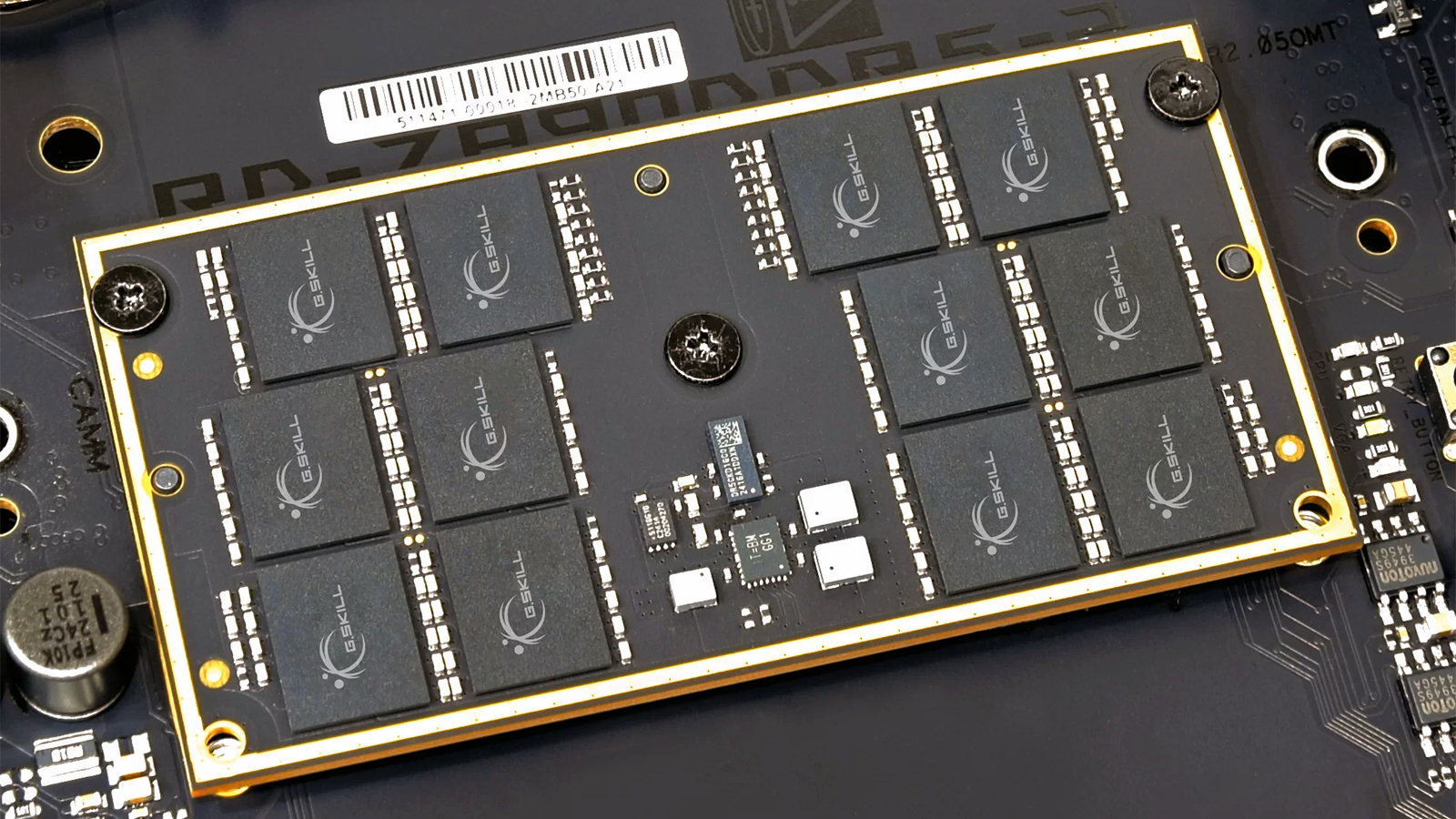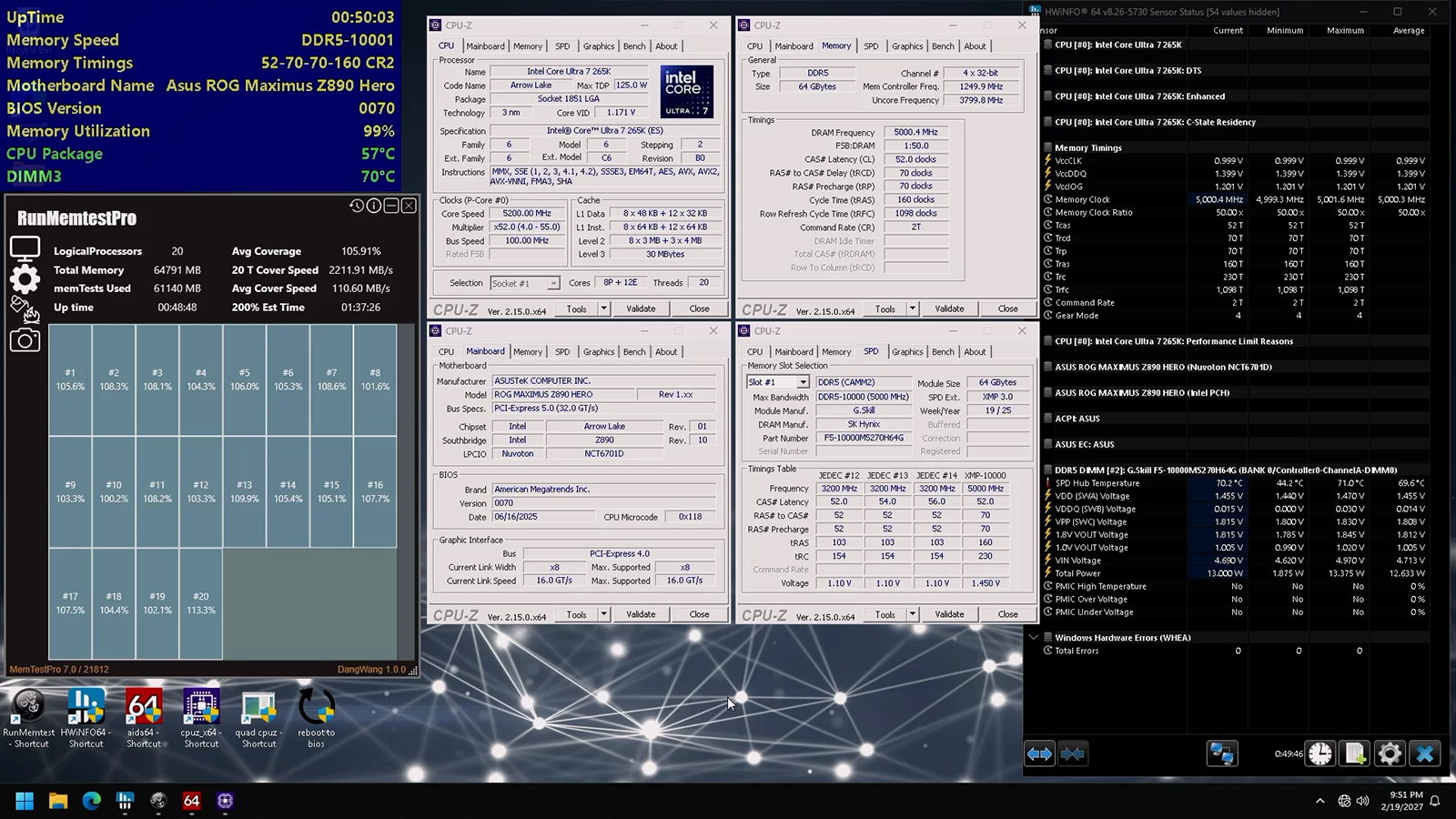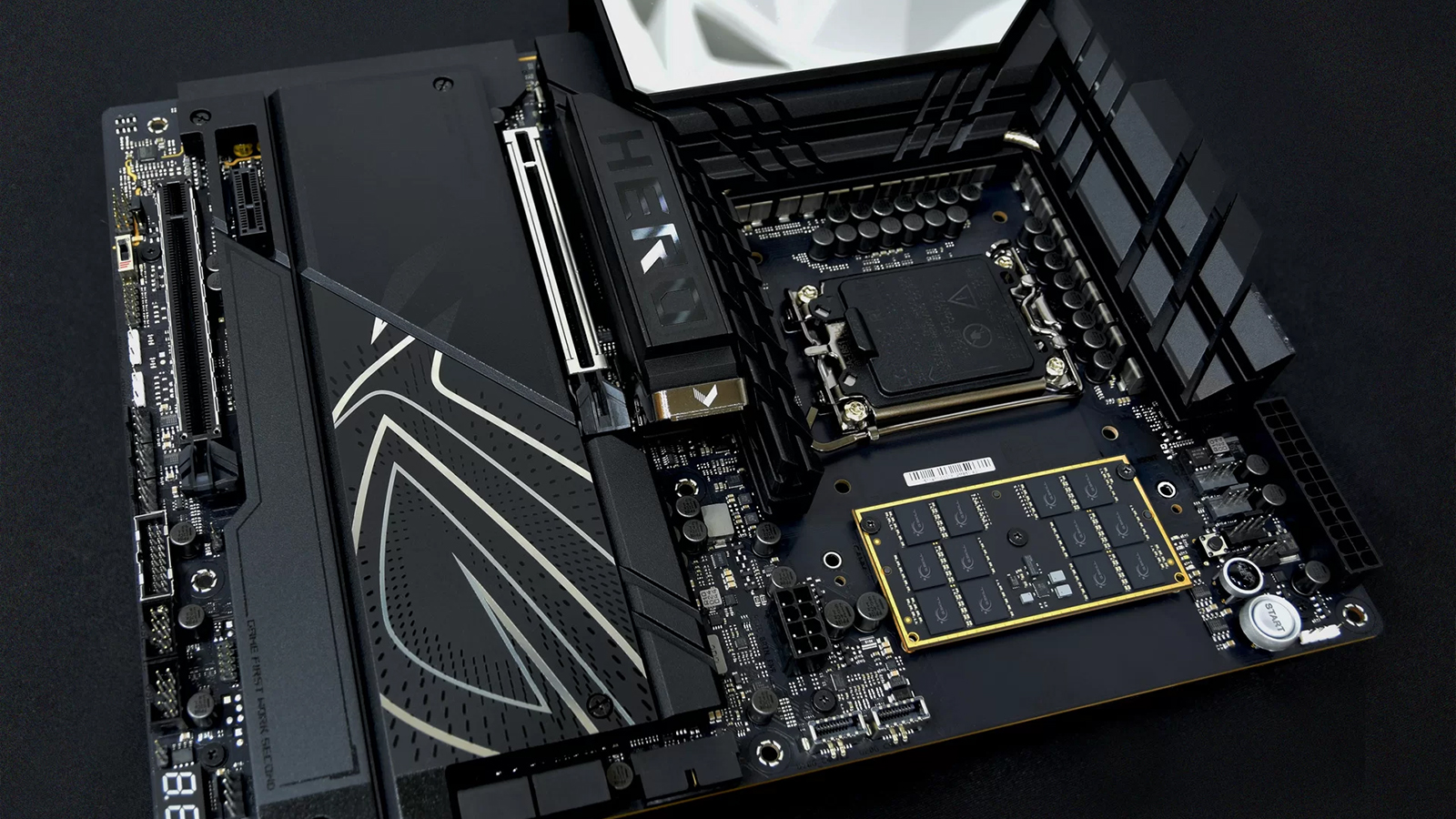
High-performance memory maker G.Skill just announced that it has hit an overclocking milestone with CAMM2. This new memory standard is designed to replace the SO-DIMM and UDIMM formats we’re used to with a thinner and faster substitute, with the first modules hitting the market around mid-2024. The company said that it hit the DDR5-10000 Memtest-stable memory speed milestone using a 64GB CAMM2 memory module on a custom Asus ROG Maximus Z890 Hero CAMM2 motherboard paired with an Intel Core Ultra 7 265K CPU.

This is a significant improvement over the official JEDEC specification for DDR5, which has speeds ranging from 4800 to 8800 MT/s. The current memory record is held by Canadian overclocker saltycroissant, who hit an eye-popping DDR5-12054 using G.Skill Trident ZS DDR5-8000 48GB (2x24GB) CL38 memory and purely air cooling. While the DDR5-10000 record achieved with CAMM2 memory modules isn’t there yet, it can potentially break that record because it was specifically designed to operate faster than the widely available SO-DIMM sticks in the market.
Despite its advantages, you’d be hard-pressed to find CAMM2 modules and motherboards on the market. Although manufacturers like G.Skill, TeamGroup, and Kingston have all shown off CAMM2 memory modules at Computex 2025, they’re still not readily available at retailers. Crucial is the only one that sells CAMM2 kits — specifically, LPCAMM2 LPDDR5X-7500 memory in 32GB and 64GB capacities. Aside from that, PC makers also haven’t released CAMM2 versions of their motherboards. So, even if you want to be on the cutting edge of tech and use CAMM2 memory for your latest build, that’s just not going to happen, at least today.

Still, the CAMM2 form factor offers advantages that make it a worthwhile investment. Because of its size advantage, laptop and handheld device makers can ditch soldered RAM on their products with LPCAMM2 modules. That way, they can have upgradability and repairability without compromising thickness. It could also cut manufacturing costs by allowing a single production line to handle all RAM capacity variants, instead of setting up separate sub-lines for soldering different memory configurations.
It will take time for CAMM2 to hit mainstream appeal, especially as DIMM is deeply entrenched in our current hardware infrastructure, arriving with Intel Pentium processors from the early 1990s. But as next-gen computing demands ramp up — from AI to AAA gaming — memory form factors like CAMM2 may finally take center stage.
Follow Tom's Hardware on Google News to get our up-to-date news, analysis, and reviews in your feeds. Make sure to click the Follow button.







